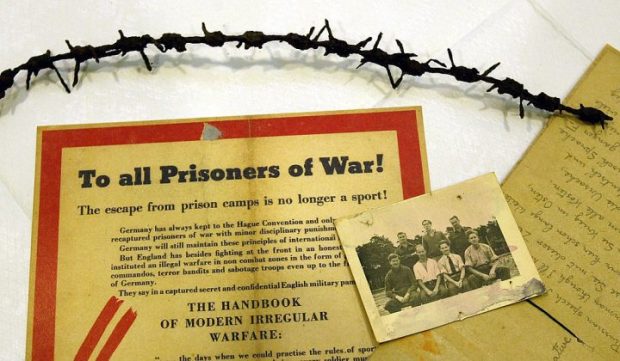One of the fascinating aspects of the Horizon Post Office scandal is the way that the sub-post masters and mistresses who were victims of the bungling or maybe malevolent Post Office management, are represented as a class. They seem to sum up the qualities that used to be thought of as quintessentially English: honest, respectable, truthful, yet quiet and reluctant to make a fuss – even when they suffered a monstrous mass injustice.
Their suffering in near silence is one reason why it has taken so long for the scandal to break through into public consciousness. Perhaps from a misplaced sense of shame, many of the unjustly accused sub-post masters and mistresses preferred to settle the false claims made against them out of court – often reducing themselves to penury in the process. Some of them even pleaded guilty to thefts they never committed, rather than organise as a pressure group to make their case loud and clear.
It seemed to my infant understanding that the profit margins were as thin as mum’s bacon slices
That is why it took the determined efforts of a single individual – sub-post master Alan Bates, hero of the eponymous ITV series as played by Toby Jones – to start moving the dial. Eventually, like a snowball rolling down a hill, the cause gathered enough momentum and influential supporters to make a difference. Bates’s campaign taps into another well-worn English trope seen in dramas like Terence Rattigan’s The Winslow Boy: that if little people fight long and hard enough for a righteous cause, then justice will eventually prevail.
I know whereof I write because such people are my people. My mother was a sub-post mistress. Although she had long retired before the Horizon scandal broke, I spent my early childhood behind the counters of the two post offices she ran and saw with my own eyes how hard she worked, and the toll it took on her health and that of my father.
Few people are aware of how one gets to run a post office, or of the vital roles they play in some communities. Particularly rural post offices like the one my mum ran took on roles analogous to the parts that vicars or GPs used to play.
Alone and bored in her house in the Surrey countryside after my birth while my dad commuted to his PR business in London, my mother thought it might be ‘fun’ to run a small village post office. She looked around and found a Post Office franchise going spare in the village of Hunston outside Chichester in West Sussex. She applied for the franchise, was duly approved by the Post Office authorities and given rudimentary training in how to conduct a business of which she had no previous experience.
There was no supermarket in the village, and like many post offices, Hunston came with a small shop attached: selling everything from sweets to cereals, coffee, cigarettes and bread. My earliest memories are bound up with the sight of the green and gold tins of Lyles golden syrup and the sound of the bacon slicer’s sharp silver blade cutting through fat on a side of pork to peel off wafer thin rashers.
I also remember my mother constantly rushing from the shop counter to seat herself behind the Post Office grille to deal with the manifold business that being a post mistress entailed. This included selling stamps and packing up parcels, of course, but also, in the days before the internet, helping customers to fill in their pension or passport applications, or processing any of the other myriad forms that modern life demands.
Mother was a stickler for honesty and kept a beady eye open for shoplifters. When an elderly village lady who doubled as a shop assistant and my nanny was caught with her hand in the till – literally – she got her marching orders with no further ado. Since our shop was a hub of village life and gossip, along with the ‘Spotted Cow’ pub opposite, word of her transgression soon leaked out despite mum’s efforts to spare her blushes.
Mum’s work in the post office and shop was physically demanding enough, but the hardest graft of all came after the shop closed its doors for the day and she sat down with an old calculator to tot up the day’s profits and losses. I can still hear the whir of that machine and my mother’s eyes, red-rimmed with weariness and worry, as she fretted over whether the business would survive. It seemed to my infant understanding that the profit margins were as thin as mum’s bacon slices.
After four or five years, my father’s health broke down and he took early retirement. For whatever reason, we moved from Hunston to the rapidly expanding former market town of Ashford in Kent, and took on another post office and groceries store there. When dad’s health had recovered somewhat he joined mum behind the counter. I used to accompany him delivering weekly boxes of groceries to outlying villages.
One of these villages, Little Chart, was the home and inspiration of the novelist H.E. Bates, author of The Darling Buds of May, an idealised picture of village life in the Kent countryside. This other Mr Bates was a frequent visitor to our post office, and Mum would despatch his manuscripts to his publisher.
It was only now that I became aware that the faceless Post Office HQ was a major bugbear in Mum’s life. I witnessed her anguished conversations with my dad about what seemed to be a constant stream of inquiries and interference in the way she ran the business from the bureaucratic Post Office centre in London, who seemed to control our lives from a distance.
Finally, the strain of keeping the double business of shop and Post Office apart and afloat got too much for mum, even with my father’s help. She threw in the towel and used her skill in French cuisine to parlay her way to a new job as a cook for an aristocratic family of baronets at their stately home in North Yorkshire. Another phase of our lives began, but I would always remember those years of her scrimping away in the Post Office stores. It may have been ‘fun’ for me as a child, but for mum, even before the advent of Fujitsu and Sir Ed Davey, it had been an ordeal of thankless, profitless toil.
Got something to add? Join the discussion and comment below.
Get 10 issues for just $10
Subscribe to The Spectator Australia today for the next 10 magazine issues, plus full online access, for just $10.




















Comments
Don't miss out
Join the conversation with other Spectator Australia readers. Subscribe to leave a comment.
SUBSCRIBEAlready a subscriber? Log in